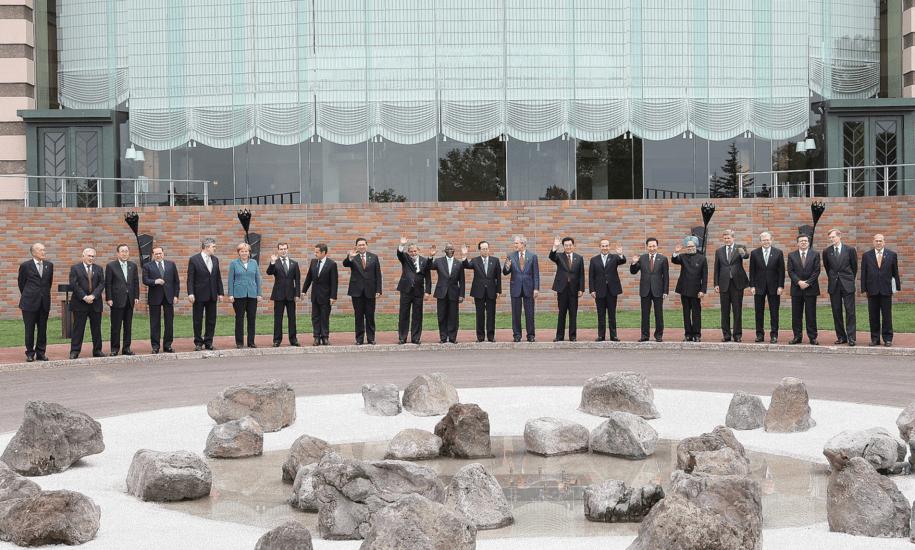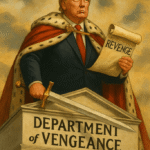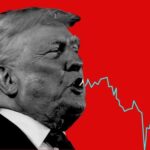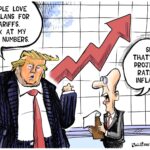The Global Cooperation Crisis and Its Impact on US Trade
The global slowdown has arrived in America. The yield below the three-month treasury is above the yield on the ten-year treasury. Every time that’s happened since the 1970s, a recession followed.This global cooperation crisis highlights the absence of international support that could mitigate the economic impact.
The Global Cooperation Crisis and the Last Financial Crisis
Most CFOs worry that a US recession will hit before the 2020 election. If it does, the international cooperation between the US and other governments that prevented the Great Recession of 2008 from becoming another depression will be fatally absent. Donald Trump has alienated the allies we’ll need next time, and he’s hired inexperienced advisers instead of experienced experts.
The Impact of the Global Cooperation Crisis on Economic Recovery
Presidents Bush and Obama tapped Treasury Secretary Henry Paulson (formerly Goldman Sachs’ CEO), Fed Chairman Ben Bernanke and New York Federal Reserve Bank President Timothy Geithner to recover from the 2008 recession. All three were deliberative and experienced in dealing with economic and monetary policy.
The Global Cooperation Crisis: Trump’s Lack of Expertise and the Impact of Steel Tariffs
Trump is anything but deliberative or experienced. He launched his steel tariffs upon becoming “unglued” over matters unrelated to the wisdom of imposing tariffs. Neither Trump nor his Commerce Secretary, Wilbur Ross, arrived in America ever read a book on the modern economics of trade. The fortunes Ross’s steel and textile companies made from George W. Bush’s steel tariffs and import limits on Chinese clothing explain Ross’s eagerness to pummel other countries with tariffs. He was unaware of their consequences.
The Global Cooperation Crisis: Challenges to Trade and Policy
Ross’s international banking experience was as shareholder and Vice Chairman of the Bank of Cyprus which the US suspected of money laundering, being a tax haven for Russian oligarchs and helping them evade US sanctions. Ross also had a 35% stake in the Bank of Ireland and was accused of insider trading when he sold it.
The Global Cooperation Crisis: Mnuchin’s Inexperience and Its Economic Implications
Treasury Secretary Steven Mnuchin has little or no experience or known views of his own on monetary or economic policy. Former Treasury Secretary Lawrence Summers tweeted “Mnuchin may be the greatest sycophant in Cabinet history.” Mnuchin even seemed unfamiliar with the provision established under the Dodd-Frank legislation to improve coordination among financial regulators. His principal qualification for his cabinet post was helping raise millions for Trump’s Presidential campaign.
How the Global Cooperation Crisis Affects Trump’s Financial Strategies
Fed Chair Jay Powell is the only Trump asset experienced enough to deal with a financial crisis. But Trump has repeatedly attacked him, comparing him to Chinese Chairman Xi as an enemy of the US. That doesn’t bode well for Trump giving Powell the necessary authority to act. If reelected and if he can legally fire Powell (which is unclear), Trump is certain to replace him with another sycophant.
With or without Powell, it’s doubtful Trump’s team could engineer a recovery from another recession like Paulson, Bernanke and Geithner did. Three weeks after the collapse of Lehman Brothers, the three of them coordinated announcements among the major central banks that they were lowering interest rates. The Fed and the European Central Bank cut their policy rate by 50 basis points. Even China was persuaded to join the US and other countries in cutting rates. Subsequently, the Fed and five other central banks jointly announced they would provide cross-border dollar liquidity through currency swaps, which were key to restoring financial stability and stemming a deeper crisis. All the governments involved praised the high degree of international cooperation.
The Global Cooperation Crisis: Erosion of Trust and Future Risks
But other countries won’t be eager to work with Trump. He’s alienated them and sowed distrust, leaving our relationships with them in tatters.
He chastised them for unfair trade practices in his UN address last week. He imposed tariffs without warning and abandoned and insulted a slew of multilateral organizations. He withdrew from the Iran nuclear deal, fracturing already-strained relationships with Europe. He berated and threatened to pull out of the World Trade Organization. He exited the Trans-Pacific Partnership, a trade agreement with eleven Pacific Rim countries, damaging their trust in the US. He withdrew from the Paris accord, falsely accusing its signatories of disadvantaging the US.
Trump insulted our allies in the G-7 and NATO while openly adoring Kim Jong Un and Vladimir Putin. Nearly as many Germans (55%) think the U.S. is as much of a threat as Russia (56%). Only 27% said they feared North Korea more than the US, and only 16% said they feared China more. Seventy-two percent want German foreign policy to be more independent of the US.
America’s allies no longer believe American interests are aligned with theirs and are relying less on America. As Foreign Affairs magazine observed, “in the last two years, American hegemony died.”
The Global Cooperation Crisis and the Potential for Future Recession
Trump’s refusal to take advice, combativeness and inability to compromise will likely preclude his cooperation with other governments. It was that type of behavior that worsened the Great Depression. Governments raised tariffs to make exports cheaper and imports more expensive. waged currency wars (Trump has threatened to devalue the dollar). Like Trump, President Hoover ignored warnings of the dangers of tariffs, which economists blame for deepening the Depression.
In 1929 the US was a large creditor nation and the Fed’s discount rate was above 6%. We are now a debtor nation to the tune of a record $22 trillion and the Fed’s benchmark short-term rate is between 1.75% and 2%. So the US will have a tougher time borrowing to spend us out of a recession and lowering interest rates to stimulate growth.
Add Trump’s flawed character and the inexperience of his administration, and we have a lot to worry about.







